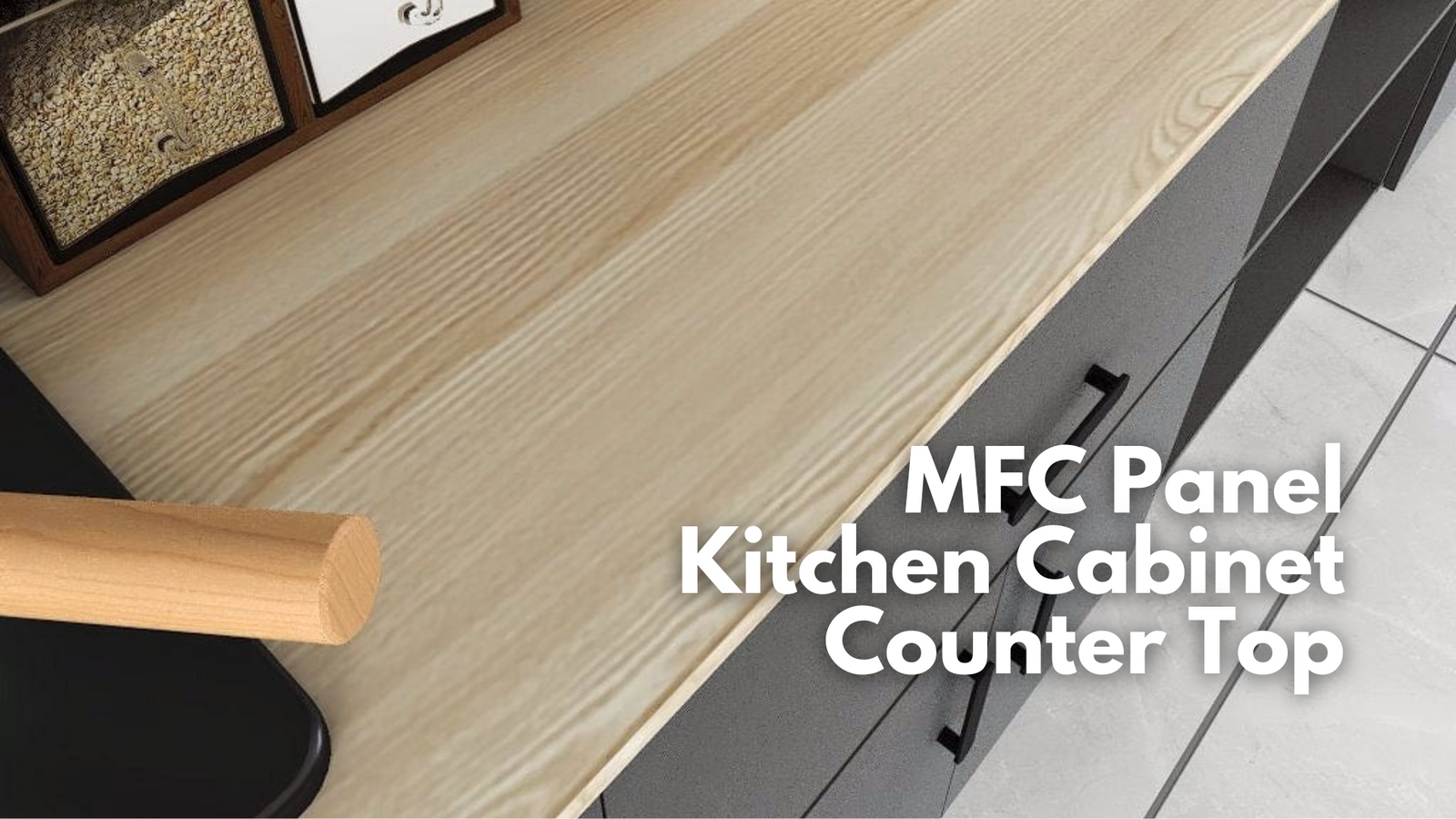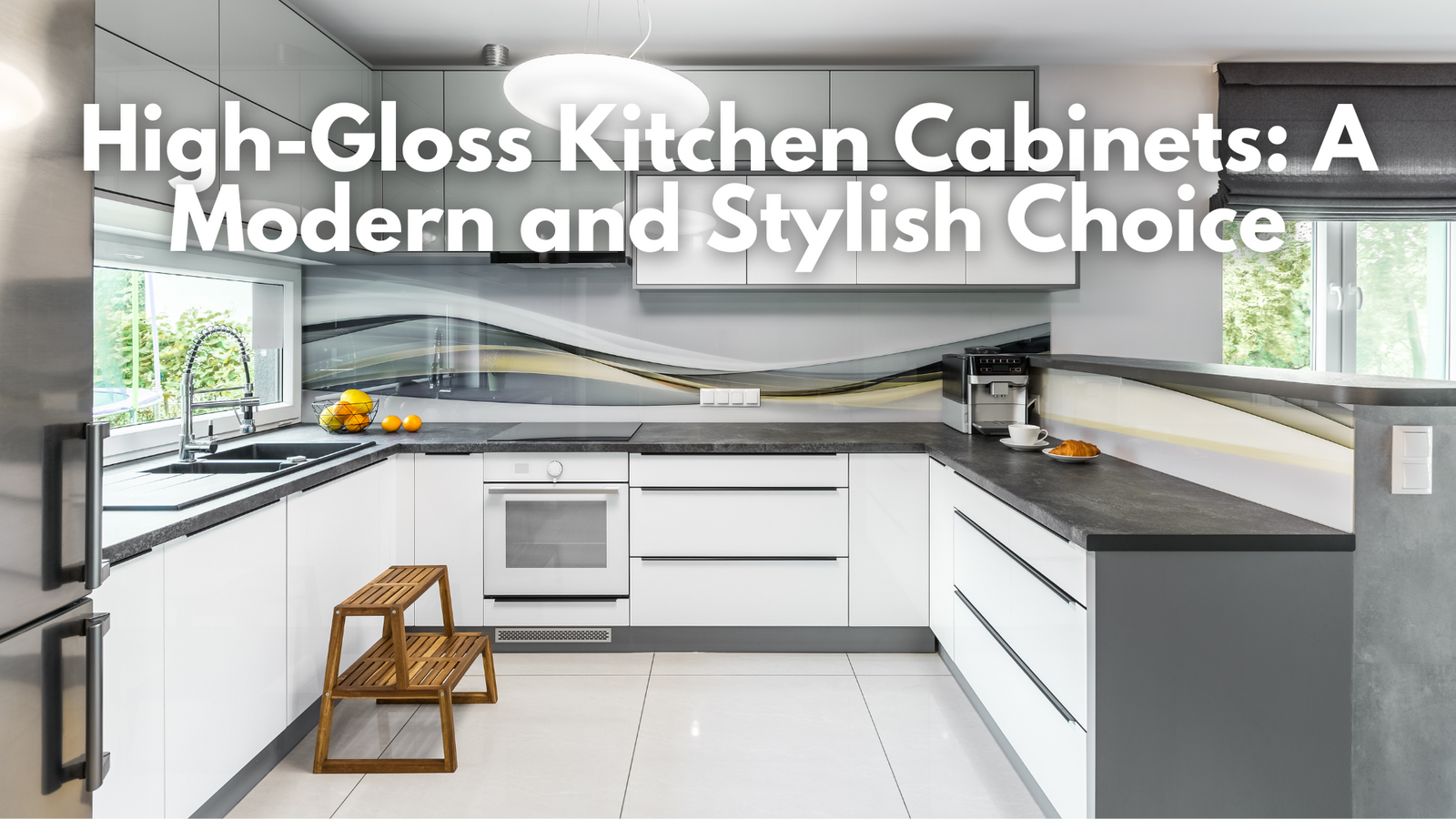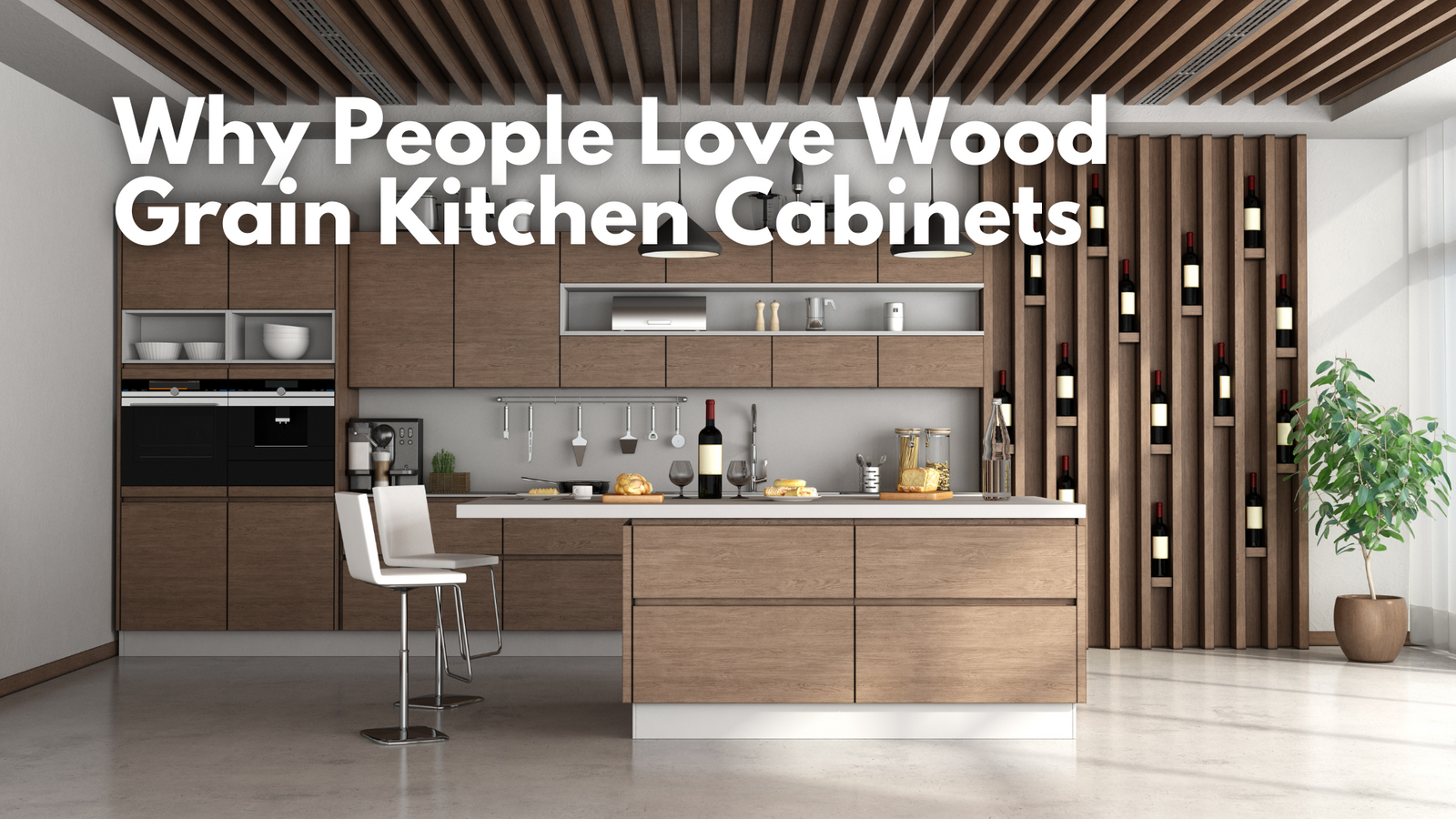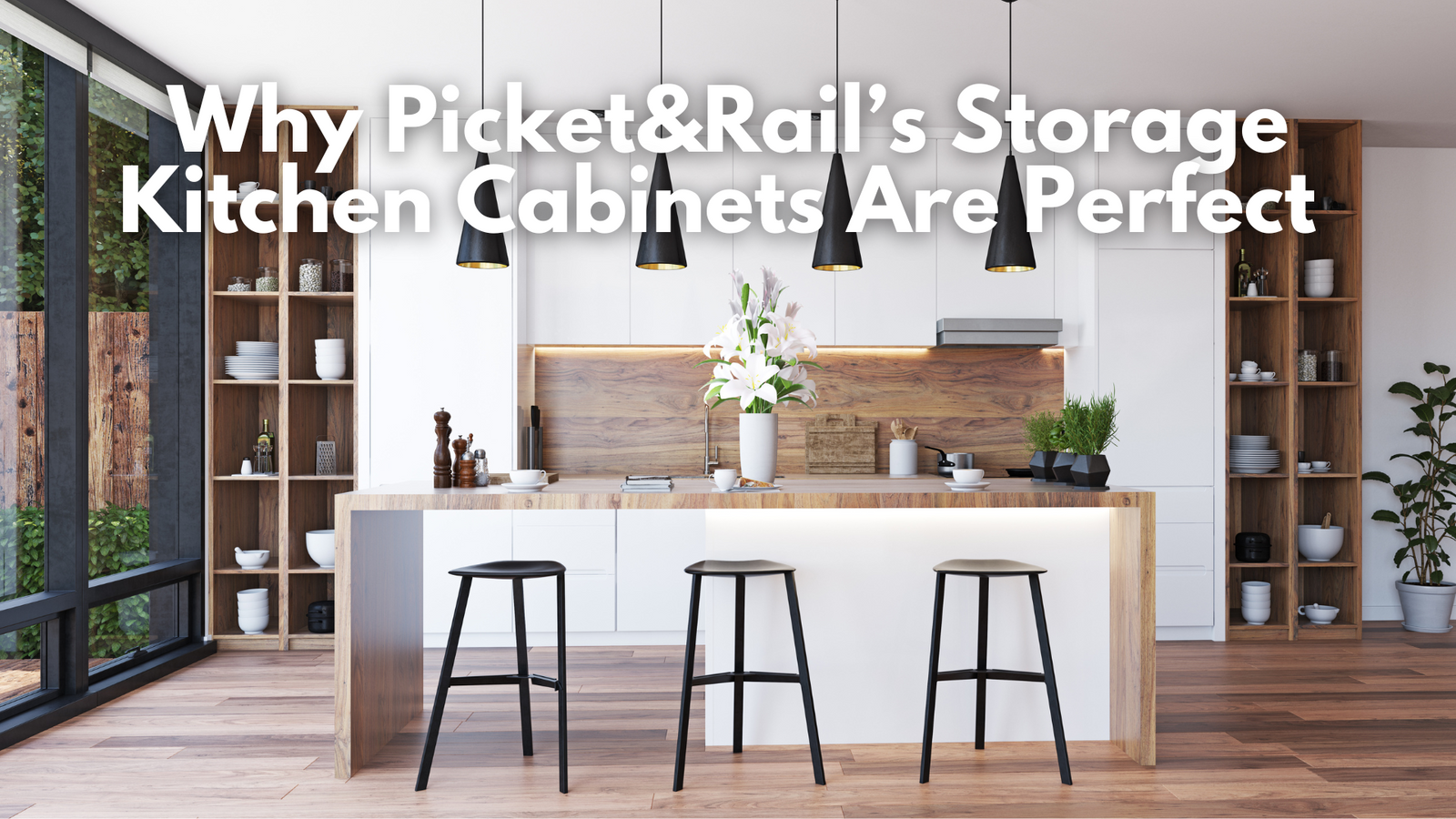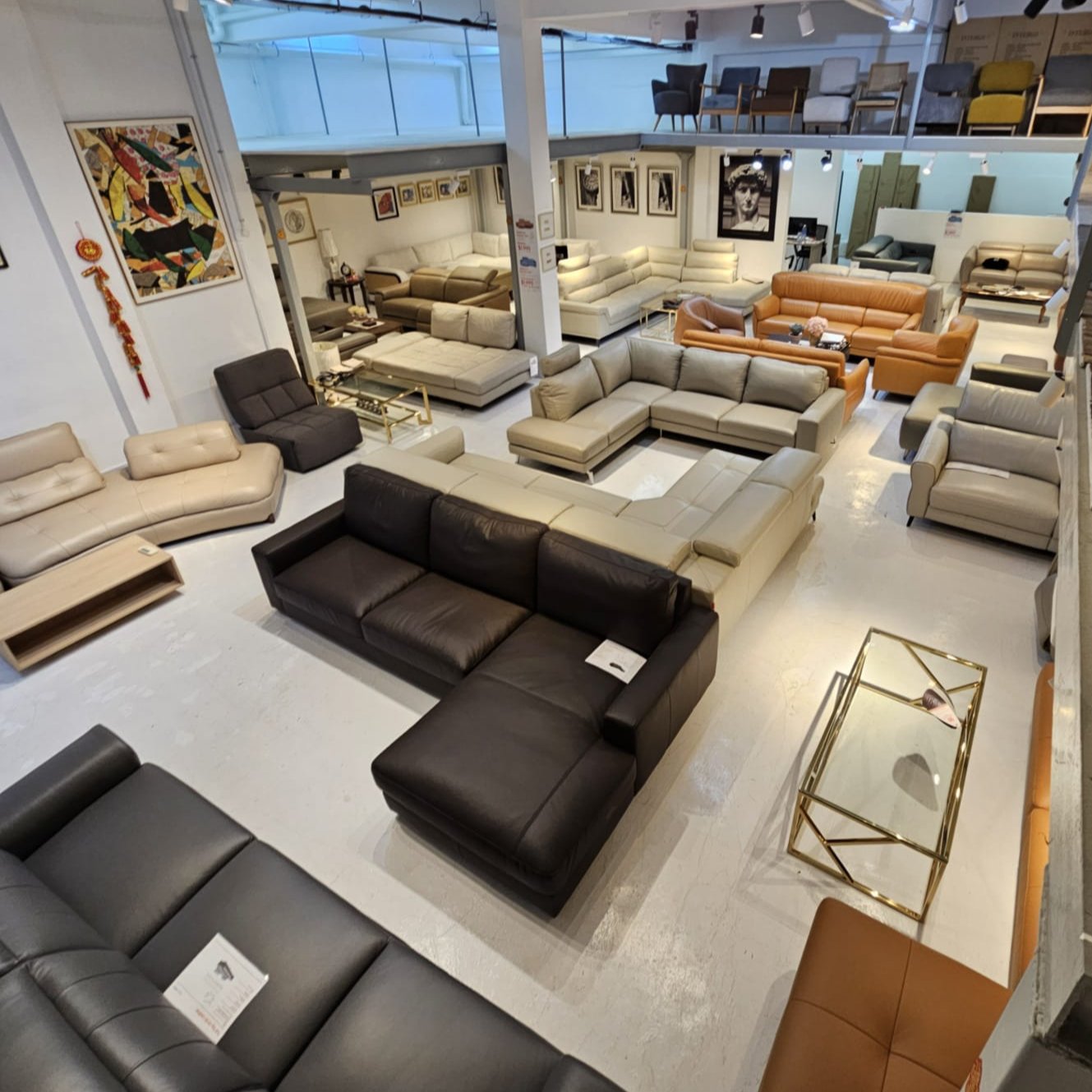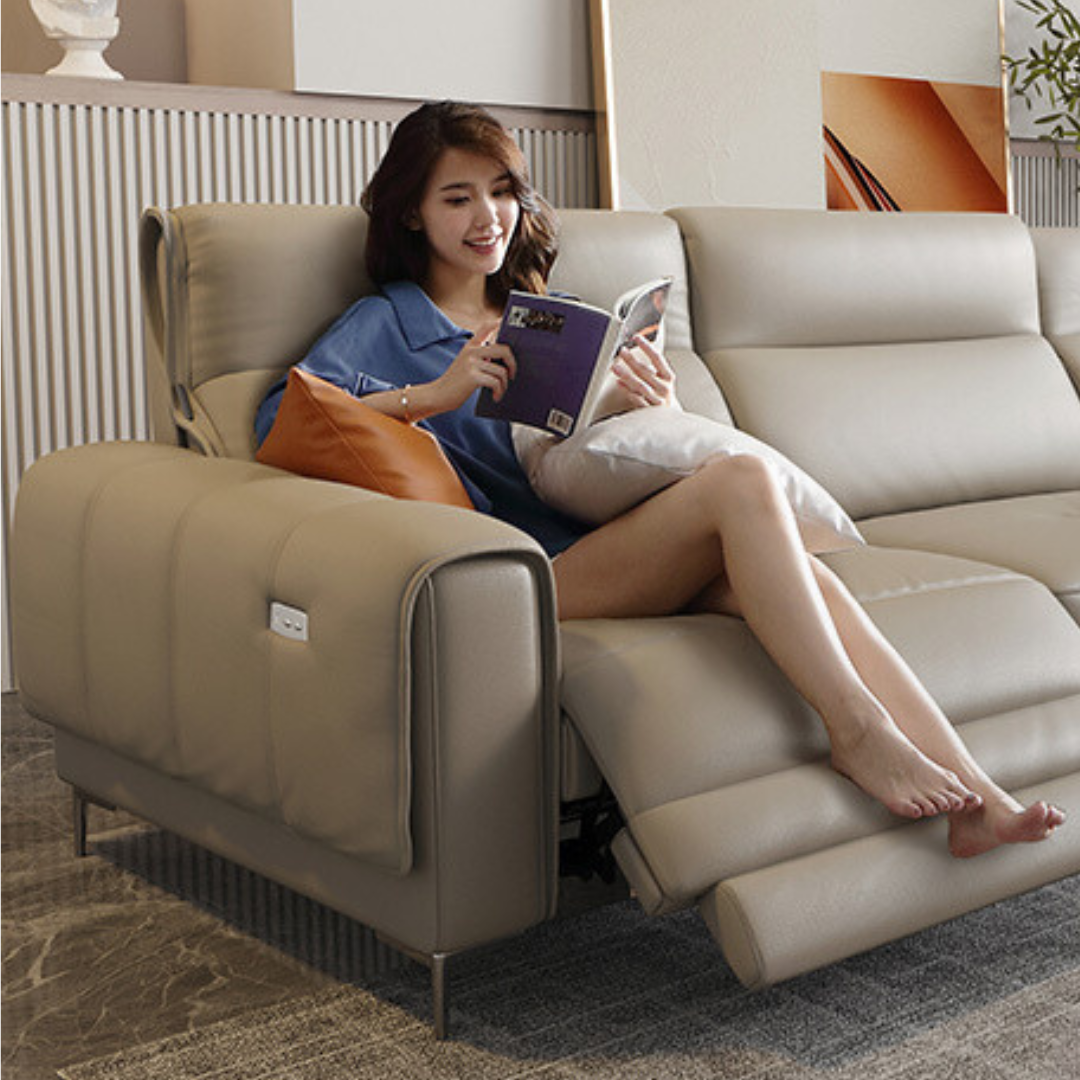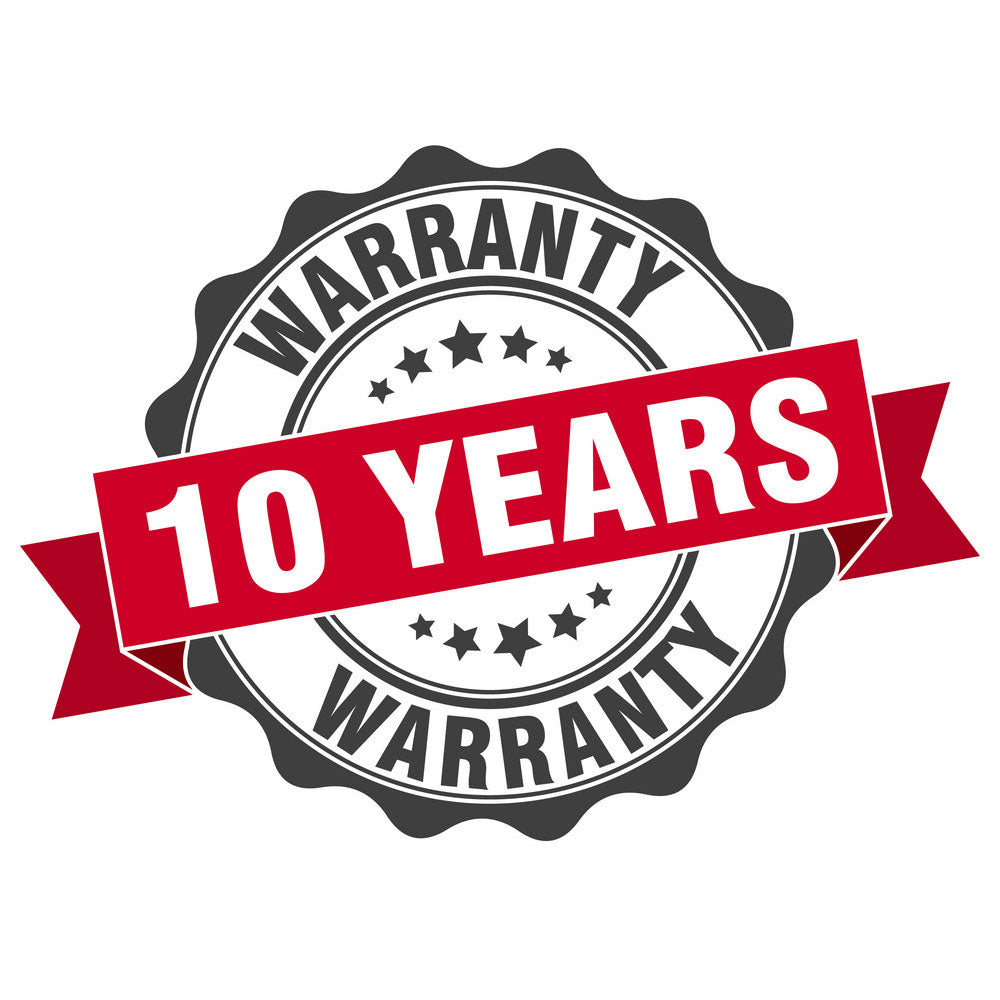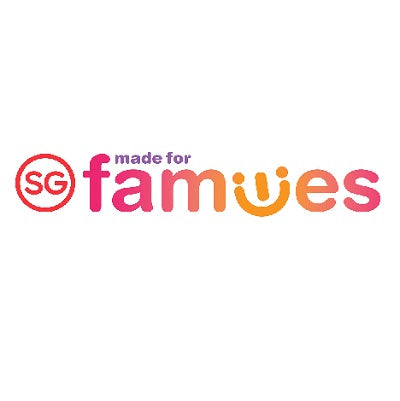Melamine Faced Chipboard (MFC) panels are a popular choice for kitchen countertops due to their affordability and variety of designs. However, they come with both advantages and disadvantages. Here’s a detailed look at the pros and cons of using MFC panels for your kitchen cabinet countertop.
Advantages Of MFC Panel Kitchen Countertop
#1. Cost-Effective
MFC panels are generally more affordable compared to natural stone or engineered quartz countertops. Their low cost makes them an attractive option for budget-conscious homeowners.
#2. Variety of Designs
MFC panels are available in a wide range of colors, patterns, and finishes. This variety allows homeowners to choose a design that fits their kitchen decor, from classic looks to modern styles.
#3. Easy to Clean
The smooth surface of MFC panels is easy to clean with standard household cleaners. Regular wiping with a damp cloth can keep the countertop looking fresh and neat.
#4. Durability
MFC panels are made from compressed wood fibers covered with a melamine resin. This makes them resistant to impacts and scratches, providing a durable surface for everyday use.
#5. Resistance to Stains
MFC panels are resistant to most common kitchen stains, such as those from food and beverages. This makes them a practical choice for busy kitchens where spills and messes are common.
#6. Low Maintenance
MFC panels do not require sealing or special treatments. They maintain their appearance with minimal maintenance, making them convenient for homeowners who prefer low upkeep.
#7. Consistent Appearance
Unlike natural materials, MFC panels offer a consistent and uniform appearance. This ensures that the look of the countertop remains the same throughout, without the variations found in natural stone.
#8. Lightweight
MFC panels are lighter than many other countertop materials, which makes them easier to handle and install. This can reduce installation costs and complexity.
#9. Eco-Friendly Options
Many MFC panels are made from recycled wood fibers and environmentally friendly resins. Choosing these options can be a more sustainable choice compared to other materials.
#10. Versatile Use
MFC panels are not only used for countertops but also for cabinet fronts, shelving, and other kitchen elements. This versatility allows for a coordinated and cohesive kitchen design.

Americana A32S Custom 32-Feet Kitchen Cabinet - Assorted Colour
Disadvantages Of MFC Panel Kitchen Countertop
#1. Susceptible to Moisture Damage
MFC panels are not highly resistant to moisture. Prolonged exposure to water can cause the panels to swell, warp, or delaminate, which can compromise their appearance and functionality.
#2. Not Heat-Resistant
MFC panels are not heat-resistant. Placing hot pots or pans directly on the surface can cause damage, including discoloration or warping. Using trivets or heat pads is necessary to protect the countertop.
#3. Limited Lifespan
While durable, MFC panels have a shorter lifespan compared to natural stone or high-quality engineered quartz. They may show signs of wear and tear more quickly over time.
#4. Vulnerability to Scratches
Although MFC panels are resistant to minor scratches, they are not as scratch-proof as some other materials. Sharp objects or abrasive cleaners can damage the surface.
#5. Visible Seams
MFC panels may have visible seams, especially on larger countertops. This can detract from the overall appearance and may require careful installation to minimize their visibility.
#6. Lower Perceived Value
MFC panels are perceived as less luxurious compared to natural stone or high-end materials. This can affect the overall aesthetic and potential resale value of the home.
#7. Difficult to Repair
If damaged, MFC panels can be challenging to repair. Unlike natural stone, which can be professionally repaired, MFC panels may require complete replacement if they become severely damaged.
#8. Environmental Impact of Production
The production of MFC panels involves the use of synthetic resins and adhesives, which can have environmental impacts. While some panels use recycled materials, the manufacturing process still has an ecological footprint.
#9. Not as Sturdy as Solid Wood
MFC panels are not as sturdy as solid wood or high-density materials. They can be less durable under heavy use or impact, making them less suitable for certain applications.
#10. Potential for Surface Degradation
Over time, the melamine surface of MFC panels can degrade, especially if exposed to harsh chemicals or abrasive cleaning agents. This can lead to a loss of luster and functionality.
Conclusion
MFC panels offer a cost-effective and versatile option for kitchen countertops, with advantages such as a wide variety of designs, ease of cleaning, and low maintenance. However, they also come with disadvantages like susceptibility to moisture damage, limited heat resistance, and a lower perceived value. Considering both the pros and cons will help you determine if MFC panels are the right choice for your kitchen.
Recommended Links
- Kitchen Cabinet Collection
- Custom Wardrobe Collection
- Solid Wood & Custom Bunk Bed
- Custom Tatami Storage Beds
Top Kitchen Cabinet Questions
- Can Custom Built-In Kitchen Cabinets Be Designed to Fit Specific Kitchen Layouts and Dimensions?
- Are There Any Special Considerations or Limitations When Installing Custom Built-In Kitchen Cabinets?
- Are There Any Maintenance or Care Requirements for Custom Built-In Kitchen Cabinets?
- What Are Some Popular Design Trends or Features for Custom Built-In Kitchen Cabinets?
- What are Custom Built-In Kitchen Cabinets?
Follow our facebook page for the latest deals.

